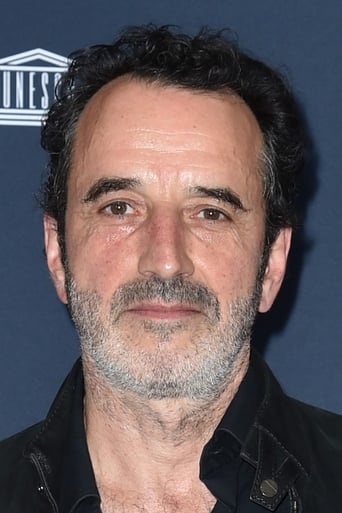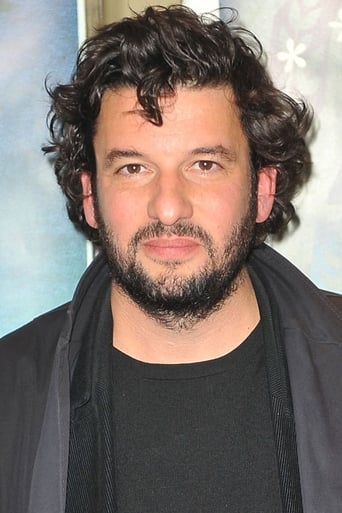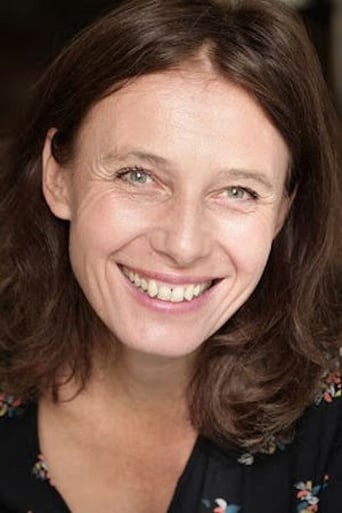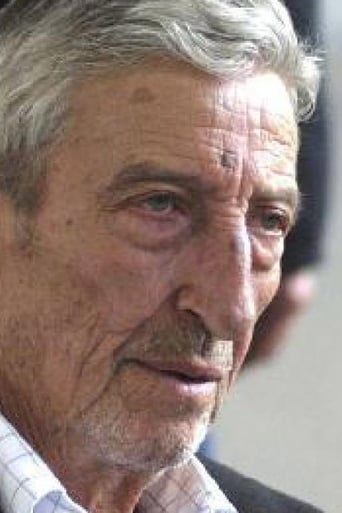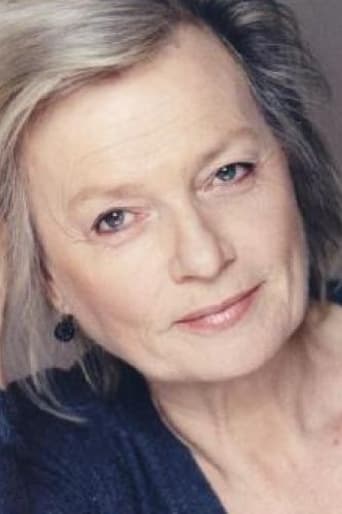CheerupSilver
Very Cool!!!
Artivels
Undescribable Perfection
RipDelight
This is a tender, generous movie that likes its characters and presents them as real people, full of flaws and strengths.
Dana
An old-fashioned movie made with new-fashioned finesse.
Howard Schumann
French director Patrice Chereau's Son Frére is an almost unbearably intimate story about the disconnect between two brothers that, like The Death of Mr. Lazarescu, provides a clinical dissection of the sterility of hospitals and their failure to confront the human dimension of illness. Based on the Philippe Besson novel, "Son Frére," the film centers on the relationship between two brothers, one gay, the other straight. Luc (Eric Caravaca) is a gay man who has been estranged from his older brother Thomas (Bruno Todeschini), a graphic artist, though they live close to each other in Paris. Though there is little back story, the suggestion is that their relationship was sabotaged by homophobia.When Thomas calls Luc on his cell phone to tell him that he is suffering from a potentially fatal blood disorder, Luc goes to the hospital to be with him, cutting off his relationship with his lover Vincent (Sylvain Jacques). Luc, at first resentful, tells his brother that the only reason he is there is because he was asked and his feelings of betrayal are evident. Neither their father (Fred Ulysse) nor their mother (Antoinette Moya) offer any comfort, only exacerbating the situation by telling Luc that they wish it would have been him instead of Thomas. Thomas' girlfriend Claire (Nathalie Boutefeu) is also of little help, feeling powerless to offer Thomas much assistance.Thomas' platelet count continues to drop and, as the possibility of a fatal hemorrhage increases, the doctors decide to remove his spleen but it does not produce the desired result. The film shifts between scenes at the hospital and ones at Luc's house near the seaside, cutting backwards and forwards in time. Despite inter-titles that identify the month in which the sequence is taking place, however, the chronology is confusing. As the illness progresses and the toll of hospital corridors, waiting rooms, and invasive procedures multiply, fatigue and inevitability sets in as the brothers struggle to reawaken some of their previous intimacy.Luc shares a touching anecdote from their childhood about how Thomas saved him from school bullies and when his brother seems ready to give up, Luc rubs his back searching for some meaningful way of connecting. When they finally proclaim their love for one another, however, the cycle of resignation and despair has already gone too far to be reversed and Luc seems to passively accept its inevitability. In one of the film's most affecting scenes, we watch the excruciatingly slow and painstaking removal of all Thomas' body hair with an electric shaver in preparation for his operation by cheery, smiling technicians.Another moving scene, perhaps the most emotional in the entire film, is the casual meeting between Luc and a 19-year old patient (Robinson Stevenin) in the hospital hallway. The patient is distraught about the possibility of another major surgery and Luc instinctively reaches out to embrace him. On the whole, however Son Frére is not an overtly emotional experience. To its credit, it studiously avoids displays of sentiment or peak dramatic moments but its affect can be flat and distancing. We long for a breakthrough or some catharsis that will bring release from all the bleakness, but Chereau does not offer any and Son Frére leaves us only with a feeling of sadness and a sober reflection on any damaged relationships of our own.
marinelad
If you know Chéreau mainly by his version of Alexander Dumas' novel La Reine Margot or maybe even more famous adaptation of Hanif Kureishi's Intimacy, get ready for something very different. His brother is not history based, there are no mass scenes or attractive dissolute individuals, there are no explicate sex scenes, only delicate human story of illness demystification, complicated family relationships and about love in general. You need patience, compassion and strong stomach for this film. About two thirds of the audience left the cinema before the end. I did not even think about it. I loved it. It was unforgettable. Thomas and Luc are brothers who had lost their closeness long time ago and do not keep in touch until the older one gets strange sickness. Thomas' blood cannot coagulate, doctors are not capable to help, his girlfriend leaves him, his parents argue at his bedside and the only one who stays besides him is his younger brother. Entirely confused and unprepared, in the beginning Luc resists the need to stay with his brother. In a sad hospital surrounding he meets every day a cold doctor, dense nurses and quiet, resigned patients. With no disgust, Chéreau shows plenty of ugly scars, wrinkled skin, hairs, bruises, shiners and burdensome long lasting medical procedures that are not pleasant for sure, but do prepare for death. The sequence where Luc meets nineteen-year old Manuel is astonishing. Gay-oriented man notices Manuel's big eyes and gorgeous lips, still present traces of unusual beauty. During the spontaneous chat with this cut-like-a-piece-of-meet boy full of wounds and scars Luc feels more empathy and warmth than he feels for his own brother. An affecting scene when Manuel's and Luc's hands touch will later repeat with Thomas, when closeness they used to have in their childhood is re-established between two brothers. Retrospectively mixed events unavoidably lead to the fact they are left all alone, with no partners and parents, aware of inescapable death. The act of dying will not be shown so there will be no real cathartic discharge. The right song used at the right place provokes so appalling shudders that every future listening to the same song will surely bring them back. The bitter voice of Marianne Faithful in "Sleep" from her album "A secret life", the song so beautiful and so sad conjures the climax up. This is where the soundtrack starts and ends. Ashes to ashes, dust to dust, as the song says.
cllrdr-1
Breaking with the visual pyrotechnics and operatic flourishes he's been associated with in the past, this devestatingly intimate drama solidifies Patrice Chereau's reputation as one of the greatest filmmakers of our time. The simple story (adapted by Chereau and Anne-Louise Trividic from Philippe Besson's novel) deals with two somewhat estranged brothers -- one gay, one straight -- who become reconciled when one of them (the straight one) contracts a rare blood disease and begins the process of dying. As the slightly smug, high-living brother brought low by death Bruno Todeschini is excellent as always. But the revelation is Eric Caravaca as the surviving brother. His fresh, unfussy performance grows in power as the situation goes from bad to worse. Catherine Ferran as the perfectly professional, but utterly unhelpful, doctor in charge is quietly frightening. Chereau regulars Sylvain Jacques and Pascale Greggory drop in for a telling turn or two, and Maurice Garrel (father of filmmaker Philippe Garrel) has a few nice scenes as an old man they meet at their beach house. But over all it's primarily a two-hander of intense intimacy. There's no music until the climax when the voice of Marianne Faithfull let's loose on the soundtrack with a song she co-wrote with Angelo Bandalamenti. And when the end credits finally roll you'll probably find yourself staggering out the door like I did. If you've ever lost someone close to you you'll feel this movie right inside your skin.
Benjamin Stello
Director Patrice Chereau, famous for many great films, made this movie. This, of course, let me hope that I would see a good film, at least. But no, this one is not. It is a slow film, and boring.Two brothers with a problematic relationship in the past, find together again when the elder one gets a dangerous disease and asks his brother to accompany him to several doctors.So far, so good: This could have been a typical French film about relationships. This could have been a sad tragedy, watching the one brother getting ill. This could have been a good movie, after all, because the acting is really good. But, I can only repeat: This is a boring, slow, far too long picture. The script is poor, and the directing uninspired. Very disappointing.

